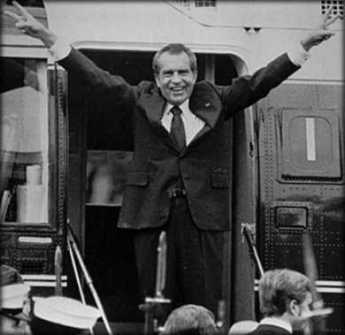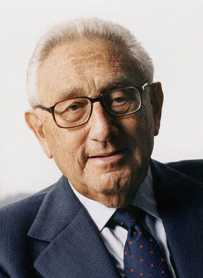Related Topics
Quakers: All Alike, All Different
Quaker doctrines emerge from the stories they tell about each other.
Quaker Theology
New topic 2016-12-04 04:18:19 description
Interesting Quaker Characters
All alike, but all different.
Nixon, Reconsidered

|
| Richard M Nixon Says Goodbye |
Many Quakers held private their opinion of Richard M.Nixon. For forthright Quakers there seemed a little too much Uriah Heap about him, too much politician let's say. As his Presidency unfolded, he took many policy positions that distressed a conservative sense of appropriateness; many conservatives reserved judgment about the steadiness of this Californian. He introduced wage and price controls, announced he was an economic Keynesian as he assumed everyone else was too, allowed inflation to get out of control, severed connections between the dollar and gold. Those are not crimes, but to conservatives, they were a betrayal. Quite different actions provoked liberals to charges of villainy, but natural defenders hesitated to defend him even when they felt he was probably more sinned against than sinning. For example, Nixon was attacked for pursuing the evidence against Alger Hiss. In view of the gravity of the offense, it was a responsible position to investigate the evidence about Alger Hiss, and quite unreasonable to defend Hiss if he turned out to be guilty. It was not Nixon the accuser who was on trial in this case, but you might have thought so.

|
| Henry Kissinger |
So before we close the history books on Nixon, let's remember that press reports proclaimed he ran for President in 1968 on the claim that he had a secret plan to bring the Vietnam War to an end. He apparently never claimed such a thing but found himself boxed in by reluctance to assert in an election campaign he had no idea how to end the war. After a few years no plan emerged, the war continued, Nixon was branded a liar. Tricky Dick had stolen an election with fraudulent flim-flam. He was hounded out of the office with the prospect of a successful impeachment ahead of him. Impeachments are political events, not judicial ones. Impeaching a president for covering up Watergate without accusing him of causing it, merely preserves appearances for the vote to go either way. He was the only American president to resign.
Forty years later, it begins to emerge that after the election he and Henry Kissinger finally figured out that China was behind the Vietnam War, may have started it, but in any event was the only power that could bring it to an end. Subtle and protracted secret negotiations purporting to concern ping-pong matches were undertaken in 1971, eventually, Nixon made his famous 1972 secret trip into the heart of Communist China. Just what explicit promises were secretly exchanged is still not clear, may never be. But it can be clearly observed that in April 1972 America did begin a steady series of troop reductions in Vietnam, and soon began steady matching progress toward helping primitive China ultimately become a marvel of peaceful economic development. In retrospect, that would have been a pretty fair offer for peace. No useful duplicity could have been successful if either side had been explicit in public about secret understandings. Both countries and the whole world are nevertheless safer for the shrewd insights that envisioned the process, the subtlety of the discussions, and the political risks accepted. It is difficult to think of any comparable public service since James Madison conceived and achieved the U.S. constitution in deliberate secrecy. Madison was to endure years of well-deserved attack for his manipulations as a politician, just as Nixon did, without once alluding to their greatest national service for vindication. It's true, of course, that Madison kept careful secret diaries, and Nixon kept tape recordings. It seemed to be sufficient to know that someday, somehow, the public would find out.
Originally published: Tuesday, June 05, 2007; most-recently modified: Wednesday, May 29, 2019